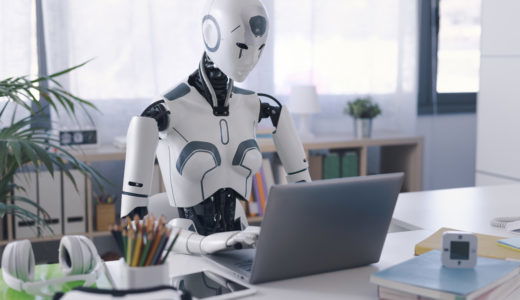FREE CONSULTATIONS:
415.925.5161

Workday AI Hiring Tool Discriminates Based on Age and Race, Says Lawsuit
The topic of Artificial intelligence (AI) is increasingly dominating headlines and raising various ethical questions. While some view AI as a tool that benefits humans and makes life easier, others claim that it is bound to lead to the destruction of civilization. The debate is ongoing as technology continues to evolve at a breakneck speed.
A recent lawsuit poses an interesting question about the nature of AI in recruitment and draws attention to one of the potential drawbacks of relying on such software. While AI can be a helpful tool for employers in terms of their human resources needs, there is a question of whether conscious or unconscious biases have been embedded into job screening systems.
Workday is facing a proposed class action lawsuit in the U.S. District Court for the Northern District of California. The complaint alleges that the company’s AI recruitment tools discriminate against job seekers based on age, race, and disability. Workday is a human resources and financial management software company.
Plaintiff Derek L. Mobley claimed that Workday’s AI screening system discriminated against him during his job search. The company allegedly created an algorithm that has resulted in bias against him and other African-American job applicants over age 40. The algorithm’s inputs were developed by humans who often possess “built-in motivations, conscious and unconscious, to discriminate,” the lawsuit said.
According to the lawsuit, Workday’s software “determines whether an employer should accept or reject” a job application “based on the individual’s race, age and/or disability.” Mobley’s lawyers stated that the company displayed a “continuous and systemic pattern” of bias, building a screening tool that disproportionately rejects job seekers who are African American, older, and have disabilities.
Mobley has several years of experience working in the financial services industry. However, he repeatedly struggled to find a job despite his qualifications. Court documents said that Mobley suffers from depression and anxiety.
The lawsuit claimed that Workday’s alleged discriminatory practices resulted in Mobley being denied employment. Around 80 to 100 of his job applications have been rejected since 2018. The repeated rejections led Mobley to suspect that employers who used Workday’s screening software were illegally denying him employment opportunities.
Mobley seeks to represent other job seekers who may have been affected by Workday’s alleged discriminatory screening system. The class action complaint covers African American job applicants and those over age 40 who have not been hired for employment since 2019.
Workday has tried to dismiss the lawsuit based on legal arguments. The company said that it does not qualify as an employment agency subject to federal laws. Additionally, it claimed that Mobley failed to exhaust all potential remedies with the Equal Employment Opportunity Commission (EEOC) before moving forward with his lawsuit.
When the use of AI potentially impacts employment decisions, workers have a right to be concerned. Many companies rely on AI to evaluate large volumes of applications or find job seekers with specific skills or experience.
A 2022 study by the Society of Human Resource Management found that around 79 percent of human resources departments currently use AI or automation tools for recruitment and hiring. Additionally, nearly 65 percent of them state that these AI tools automatically reject unqualified job applicants. About 25 percent of employers plan to start including AI or increasing their use of it over the next five years.
Algorithms help employers reach the best-suited job applicants for various job openings. However, the Harvard Business Review determined that AI systems can result in job postings that reinforce implicit race or gender biases that are automatically learned from an employer’s preferences.
In May 2022, the EEOC stated that employers can be held accountable for disability discrimination arising from software or AI, even when the tool was obtained by a third party. Although workplace discrimination is unlawful, proving that a company built a discriminatory algorithm may be challenging. As employers continue to use AI, it is important to consider its legal implications and impact on workers.
While McCormack Law Firm is not involved with this class action, we have handled a wide variety of workplace discrimination cases. If you have been subjected to discrimination based on age, race, disability, or other protected classes, reach out to our San Francisco employment lawyers right away. Contact us today for a free initial consultation.
Read more
Costco Disability Discrimination Case: What It Teaches About Reasonable Accommodations
In California, employees have legal protections when they get hurt on the job and can’t return to work right away. Sometimes, even with those protections in place, things don’t go the way…
Can You Trust AI to Review Your Job Application Fairly? Study Finds Screening Tools May Be Biased
When you apply for a job online, there’s a good chance your resume will be reviewed by software before it ever reaches a real person. Many companies now use artificial intelligence to…
Tech Industry Still Struggles with Widespread Discrimination, Says EEOC Report
Technological innovation, together with talent acquisition and progress, remains the dominant image of the tech industry. Although organizations have made continuous promises to enhance diversity and equality, they continue to experience challenges…
Google Discriminated Against Employees on Parental Leave In Recent Lawsuit
Today’s contemporary workplace allows employees to depend on parental leave policies to manage their careers and family responsibilities. These workplace protections serve a crucial function because they prevent employees from suffering negative…
SEEN ON









